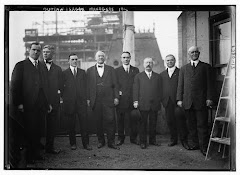 Reviewer: Elle Ewok
Reviewer: Elle EwokRating: 4 Piergories
Review: I generally avoid young adult fiction unless it begins with the words "Harry Potter" but after years of hype and my friends carrying on about The Hunger Games books I decided to jump in. They are not that long and to quote my almost-brother-in-law, "those are the books with 6 words per page, right?" In short, I figured it wouldn't be that much of an investment if they turned out to be stupid.
The Hunger Games is a certified cultural phenomenon so I am sure you are aware of the plot. It is a dystopian story about North American sometime in the future. A rich capital in the Rocky Mountains rules and subjects everyone else in the country (divided into 12 Districts) to poverty and essentially slavery. To punish the Districts for a rebellion 75 years earlier, the Capital hosts the annual Hunger Games. One girl and one boy from each District are drafted to compete to the death in an outdoor arena that is full of death traps and misery. It is like a futuristic Roman Colosseum. The Hunger Games are both a punishment and a form of intimidation and control.
As I read the books I noticed they read more like movie scripts than novels. I was not surprised to later find out that the author was a television writer. I really enjoyed these books but I think this is a story meant to be told on the big screen. I am thrilled the movies are being made and based on the trailers, the first one at least looks excellent.
The first book is the tightest and the best. The second and third book are not as good as the cast of characters and scope of the story get big and somewhat unwieldy. That said, they are still incredibly fast-paced and entertaining. I was a bit worried because when I initially heard the plot (kids fighting to the death) it seemed so incredibly silly that I couldn't imagine it would work - but it did.
I think my favorite part of The Hunger Games Trilogy is that the main character and narrator is far from perfect. She is incredibly brave, strong and capable of incredible acts of love and selflessness. That said, she is also insensitive, self-absorbed, a bit mean-spirited and short-sighted/impulsive at times. In short, she is a deeply flawed person that is capable of great things - just like most people. I like how even though the story is told through her eyes and she is the catalyst for so much of the action in the story, I would argue she is not the hero of the story. In my opinion, someone else is - I liked that. Also - the book doesn't shy away showing how badly the trauma of war (inside the games and out) have affected her and others. These are not characters who can be victims of, and the cause of, numerous horrors of war without significant scarring.
Obviously, I also like that the main characters came from District 12 (ie Appalachia). Yay for Appalachia - Did you know that Pittsburgh is the Paris of Appalachia?
As I was reading the third book, I was kind of disappointed although I still was enjoying it. The story just started declining in the second and third books but I am not sure why exactly. 3/4 of the way through the last book I prepared myself for a lackluster ending because I had heard less than great things about the third book and I didn't really like where I saw the story heading. However, the end of the third book really won me over - I loved it. The ending is...well..realistic. The scars of trauma and war remain. There is no such thing as a fairy tale ending for people who have endured the absolute breakdown of humanity. I like that Katniss finally made her choice and I like the choice she made. I like wondering how much of a choice she really even had. I like how it isn't a neat and clean ending but a complicated one with elements of both deep sadness and hopefulness as well. It basically perfectly reflected the themes of the book as I saw it: That humans are capable of incredible evil but our capacity for love also propels us to do amazing things; That survival sometimes forces us to sacrifice some of our humanity - how much is too much? How much can you sacrifice and still go back to a normal life? In sum, I liked that the ending was more complicated and subtle than I expected it to be. Loved that the author didn't take the easy ending or the ending her readers probably wanted.
Here's hoping the movies can capture what made these books so great.


No comments:
Post a Comment